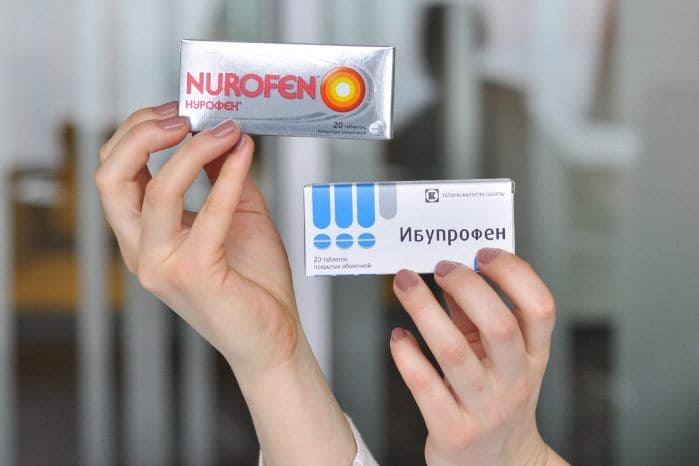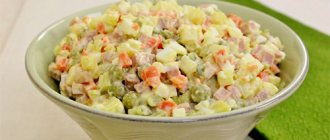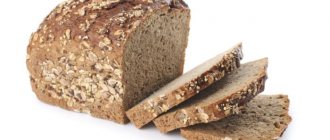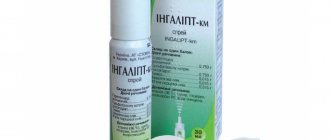Nurofen for breastfeeding
To understand the current dilemma about what Nurofen can mean for a baby while breastfeeding, it is enough to remember that the use of the drug is strictly prohibited in the 2nd and 3rd trimester of pregnancy. Strong recommendations to avoid taking the drug during pregnancy are based on the specific properties of the main active ingredient.
Cautious advice to take medicine after feeding, express milk, and limit yourself to one-time use can be found more and more often. It is not recommended for children (up to 6 years), or even for the elderly.
The use of Nurofen during breastfeeding for a mother may provide the necessary effect in reducing inflammation and eliminating pain. But this is a short-lived and symptomatic relief, the potentiation of which requires regular use in the prescribed dosage. And continuous use is strictly not recommended.
Children's Nurofen during breastfeeding for the mother is also in doubt, since there is still no reliable clinical data on the rate of distribution, metabolism, and method of elimination. The list of indications for children's Nurofen is quite extensive, but it is not mentioned that the medicinal effect is obtained from the non-steroidal anti-inflammatory active component. And not only does it belong to the older generation of drugs, but, judging by the list of side effects, it is by no means a safe substance.
The use of Nurofen in the adult version is recommended for the shortest possible time due to the likelihood of allergic reactions or exacerbation of existing diseases of internal organs. For long-term treatment, monitoring of the condition of the liver/kidneys and peripheral blood monitoring are required.
During breastfeeding, you should be especially careful when choosing medications. The baby’s body is so vulnerable due to imperfect immunity and the digestive system, which is formed after birth, that sometimes instead of medications it is recommended to take only folk remedies that can alleviate symptomatic manifestations. If the disease is serious enough, drug treatment is necessary; sometimes you have to stop breastfeeding in order not to harm the baby’s health.
The pharmaceutical industry produces dosage forms that can have a therapeutic effect without passing into breast milk. If you take the necessary components in this form, you can avoid adverse effects on the child’s unprotected body.
Reviews
Below are reviews from women about the use of Nurofen during the lactation period. We suggest that you familiarize yourself with them to understand whether it is worth taking this medication or whether it is better to use other means to eliminate pain and fever.
Marina, 31 years old
When I first became a mother, I often read various forums in search of answers to questions about motherhood and health. When I suddenly had a fever at night, and there was no way to call a doctor, it was on one resource that I read about the use of Nurofen for headaches during the guard. I took one tablet after expressing milk. Neither I nor the child had any side effects after taking the drug.
Irina, 25 years old
Nurofen is an excellent emergency remedy for eliminating various types of pain. I read on some forums that children's suspension is ineffective for adults, but in my case it was the children's syrup that brought down the temperature. True, I doubled the recommended dosage for children.
Svetlana, 28 years old
My friends praised Nurofen, as it did not cause any side effects during lactation. In my case, one dose of the capsule caused a severe allergy in my baby. That's why I somehow don't trust this drug.
Remember, you can take Nurofen for your mother for headaches, toothaches and fever only after permission from a specialist. Do not self-medicate, as not only your health, but also that of your baby depends on it.
Description and characteristics of the drug
People who regularly take painkillers know how quickly Nurofen acts when there is a need to eliminate pain symptoms. After taking a tablet of a non-steroidal anti-inflammatory drug, in an adult, the inactive form of Ibuprofen is quite quickly absorbed into the active one, helping to eliminate the symptoms of pain of various etiologies. Nurofen is taken for migraine or myalgia, rheumatic and joint pain, pathological manifestations in the back, algodismenorrhea and simple headache, the etiology of which is not clear.
We recommend reading: Relief during breastfeeding
It is often considered necessary to take it for uncharacteristic forms of the disease: headache caused by the activity of a virus or an acute form of a respiratory infection, although less dangerous means can be used for this.
Like any NSAID, Nurofen (the main component of which is ibuprofen, a simple, much cheaper remedy) blocks the synthesis of prostaglandins. It is this process that mediates the appearance of pain, fever, and the development of inflammation. But you can stop the synthesis of prostaglandins by more harmless means.
What is Nurofen
Nurofen is a non-steroidal anti-inflammatory drug produced by the British pharmaceutical company Reckitt Benckiser. Designed for adults and children over 3 months. The active ingredient of the drug is ibuprofen, which prevents the production of prostaglandin, eliminates inflammation and pain, and reduces fever.
Indications for use of the drug are:
- migraine attacks;
- toothache and headache;
- a cold accompanied by fever;
- painful sensations in muscles, joints;
- various infections and inflammatory processes;
- activation of the immune system, increasing the body's resistance to pathogenic microorganisms;
- reduction of pain during childbirth, as well as in the postoperative period;
- at risk of premature birth, suppression of uterine contractions.
The drug is intended for external and internal use. After ingestion, the active component enters the circulatory system, increasing the spectrum of action.
You can take Nurofen during breastfeeding only after your doctor’s permission
Release forms of Nurofen
The popular medicine is available in several forms and is a medicine that is absolutely affordable for people with any financial situation. Perhaps it is affordability that determines its popularity, but it is no less likely that the demand for the drug is due to the numerous dosage forms of Nurofen. Paradoxically, absolutely identical forms of the drug, with completely identical therapeutic effects, even similar instructions for use, are produced under different commercial names.
Nurofen : Plus/Plus N, Express/Express Neo, Ultracap-Forte/Forte, Active, for children (children)/Period - commercial options, the difference of which is only in price and in auxiliary components, but not in the effect provided, indications for use , contraindications.
The question of whether a mother can take Nurofen during lactation if the baby is breastfed, a solution to the problem, can a mother take baby Nurofen while breastfeeding - this is the same question that requires a categorical refusal if long-term use is necessary, since in any of the dosage forms – effervescent tablets for the preparation of a drink, prolonged or coated, capsules and tablets coated with sugar, the difference is only in the amount of the active substance (ibuprofen) in one tablet or capsule.
The remaining types of numerous products called Nurofen may contain some differences in form or added chemical components in:
- gel for external use of ibuprofen only 5%;
- children's suppositories (Nurofen suppositories) - 60 mg, and in children's suspension - 200 mg;
- Plus/Plus N also has 20 mg of codeine;
- Nurofen Period ibuprofen 300 mg, and in Nurofen Forte - 400 mg ibuprofen.
During lactation, a nursing mother must be extremely careful about her own health. When taking an inflammatory inhibitor that is potentially harmful to the child's health, it is necessary to find out the cause of its occurrence before starting to take the medicine. You may need other medications or you may be able to avoid chemicals.
Children's suspension or tablets?
Most mothers during lactation wonder what is better to drink, Nurofen syrup for children or tablets for adults, so as not to harm the baby and not stop lactation. Experts are sure this is not necessary.
Baby suspension is useless and ineffective for the mother’s body. Syrup and tablets contain the same active ingredient (ibuprofen), but the dosage in these drugs is different. For this reason, for headaches and toothaches, as well as fever, it is more advisable for adults to take tablets or capsules, but taking into account the recommended daily dose.
Indications for use of Nurofen
The effect of the drug extends to any condition in which there is potentially a temperature, inflammatory processes, as well as pain symptoms, from joint pathologies and rheumatoid arthritis to neuralgic amyotrophy. Before advising the patient to take the drug, attending physicians of various specialties carefully study the existing indications, the severity of the condition, and the need to prescribe a non-steroidal anti-inflammatory drug. Often, preference is given not to beautiful packaging or a sugar coating, but to new-generation NVPS.
We recommend reading: Solarium while breastfeeding
What to replace
It happens that the Nurofen in the house runs out, and it is necessary to urgently eliminate the signs of pain and inflammation. For this, Nurofen analogues are used, which are similar in chemical composition and have the same targeted effect on the source of the inflammatory process in the body:
- Ibufen;
- Ibuprofen;
- Brufen;
- Advil;
- Bonifen.
Be careful! Despite the similar composition, each drug has its own number of contraindications and side effects, therefore, before use during breastfeeding, consultation with a doctor is necessary.
Folk remedies
In situations where there are no pharmaceutical drugs on hand to help relieve inflammation and relieve pain, a nursing mother can use one of the traditional medicine recipes:
- wiping the areas where the lymph nodes are located with a solution prepared from water and apple cider vinegar (in the armpits, palms, under the knees, neck and elbows);
- applying a cool compress to the forehead and eyes;
- rubbing the area of the temples and the back of the head with a mixture of essential oils of lavender and lemon (oils are mixed in equal quantities, 1-2 drops each) - this helps to temporarily eliminate headaches;
- drinking tea or warm milk with honey accelerates sweating, thins mucus, reduces the level of inflammation, and fights microbial flora. It is important that the baby is not allergic to honey and lactose.
Often, the use of traditional methods during breastfeeding is as effective as pharmaceutical drugs, so before using anti-inflammatory pills, you should first try to eliminate pain and fever using safe methods.
Side effects and contraindications
Is it possible for Nurofen to be taken during breastfeeding, even if taken immediately after feeding the baby? For an adequate mother, the decision is quite simple. It is enough to re-read the list of listed contraindications to decide on the use for hepatitis B. Even potential symptoms of an allergic reaction in a child are already sufficient grounds for a negative decision in favor of Nurofen as a means of lowering body temperature or constantly swallowing it for headaches, back pain and joint pain.
Side effects of Nurofen are a long list of problems with the gastrointestinal tract: pain, irritation, diarrhea, flatulence, vomiting, constipation, aphthous stomatitis and pancreatitis, from the nervous system - the same headaches, as well as dizziness, and sometimes depression, hallucinations. Long-term use can cause negative manifestations from the urinary system, cardiovascular system, respiratory system, and allergic manifestations. It may also be interesting that NVPS affects the sensory organ and can cause a decrease in the intensity of vision and hearing.
Contraindications
Breastfeeding women should refrain from using Nurofen if:
- individual intolerance;
- stomach ulcer;
- various bleedings;
- last trimester of pregnancy;
- asthma;
- problems with the optic nerve;
- various pathologies of the kidneys, liver, heart.
Side effects in adults include the following symptoms:
- swelling;
- hypertension;
- flatulence;
- vomit;
- allergic rashes;
- stomach upset;
- nausea;
- noise in ears;
- dizziness;
- impotence.
If you notice any of the above symptoms, stop taking the medicine.

How can I replace Nurofen during GV?
How to take Nurofen for a nursing mother
If the question of the inapplicability of Nurofen during breastfeeding still remains due to impossibility, mothers need to think about the very minimum dose. Even if she herself uses children's Nurofen while breastfeeding, which contains a minimum dosage of non-steroids, and does this immediately after breastfeeding, so that the compound potentially dangerous to the child is eliminated from the body by the next feeding, the likelihood of an effect on the unprotected child's body still remains potentially possible. No more than one tablet per day - only as a last resort.
The effect of Nurofen on a child
While taking the drug, pay attention to the baby's condition. If you notice that your baby's health has worsened, stop taking the medicine.
Side effects in a child with prolonged use of Nurofen by the mother are manifested by the following symptoms:
- worsening sleep;
- hives;
- painful constipation;
- colic;
- the appearance of large blisters on the body;
- diarrhea.

How to protect the baby after the mother takes Nurofen
How to keep your baby safe
Following some recommendations will reduce the negative impact of the drug on the baby’s well-being:
- Follow the recommended dosage strictly and do not exceed it. It has been proven that the manifestation of an allergic reaction occurs as a result of excessive use of the drug.
- Take the drug after breastfeeding. When ibuprofen penetrates into the blood and breast milk, it acts for about 3 hours, after which it is excreted from the body. This means that the pill taken immediately after breastfeeding will no longer be effective for the next feeding. If you wish, you can express milk before taking the medicine and then feed it to your baby.
- Do not take Nurofen regularly or for a long time. This drug is suitable for the relief of acute pain.
- If your body temperature does not rise above 38 degrees, then refrain from taking the medicine.
- Monitor your baby's health regularly. If you notice any side effects, stop taking the medication immediately.
Folk remedies
To eliminate the harmful effects of medications for colds or viral diseases, you can use effective traditional methods. Elimination of inflammation, headaches, inflammatory processes in the throat, runny nose, you can use herbal infusions and decoctions with antipyretic and analgesic effects, compresses, rinses, herbal teas and inhalations. If the cause of pain is deeper, you need to consult a doctor and take steps towards recovery. After all, a mother’s poor health can negatively affect the baby.
Composition and effect of the drug
The drug Nurofen contains the substance ibuprofen, which inhibits the body's production of prostaglandins (substances that contribute to an increase in temperature during the inflammatory process). List of actions on the body:
- pain relief from muscle spasms, headaches, joint pain, menstrual pain;
- elimination of discomfort after surgical interventions;
- stimulation of the immune system and increasing the body's resistance to infections;
- relief from hyperthermia in infectious and inflammatory diseases (acute respiratory infections, acute respiratory viral infections, rheumatoid pathologies, tonsillitis, sinusitis).
Good to know! The multifunctional product makes you feel better when you have a cold, reduces fever, and gets rid of inflammation - this is why it attracts the attention of nursing mothers, taking into account the relative safety during breastfeeding.
Feedback from nursing mothers
Women who used Nurofen while breastfeeding leave positive reviews about the drug. It reduces temperature, relieves pain in muscles and joints, and reduces the severity of the inflammatory process. Many mothers claim that even taking Nurofen for children brings them relief, and they do not note any side effects for the child.
There are also negative reviews - they are most likely written by women who used the drug without first consulting a doctor and did not follow the recommended dosage, causing side effects for themselves and their baby. Therefore, before taking medications during lactation, doctors always advise taking into account possible nuances and contraindications.











